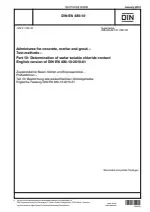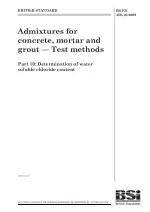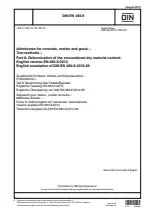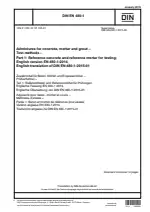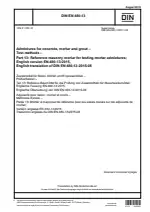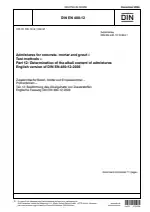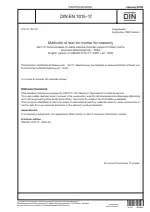Admixtures for concrete, mortar, and grout - Test methods - Part 10: Determination of water-soluble chloride content
Also Known As:
The DIN EN 480-10 standard provides a set of guidelines for determining the amount of water-soluble chloride present in admixtures used in concrete, mortar, and grout. The standard specifies methods for determining the content of water-soluble halogens, excluding fluorides, which are then expressed as chloride content.
The purpose of this standard is to establish a consistent and reliable method for quantifying the chloride content in admixtures. This information is important as excessive chloride content in concrete can lead to corrosion of steel reinforcements and other undesirable effects on the concrete's durability and performance. By accurately determining the water-soluble chloride content, manufacturers and users of admixtures can ensure that the chloride levels in their products are within acceptable limits.
The standard provides detailed procedures and protocols for sample preparation, extraction of water-soluble chloride, and measurement of chloride content through appropriate analytical methods. It also includes guidelines on calibration, quality control, and reporting of results.
| Descriptors | Additives, Chemical analysis and testing, Chloride content, Chlorides, Concrete admixtures, Concretes, Construction, Construction materials, Determination, Determination of content, Grouting, Grouting mortar, Halogen, Investigations, Mortars, Setting, Specification (approval), Testing, Water soluble |
| ICS Codes | 91.100.30 - Concrete and concrete products |
| Language(s) | English |
| File Size | 368.6 KB |

